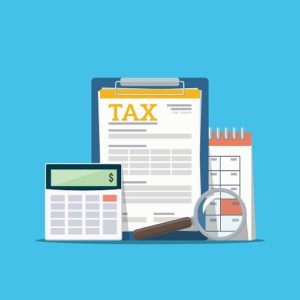Things to Consider for Your 2015 Capital Gains Tax
There are all kinds of investors in the world. Some are looking to make a quick buck by buying and then quickly selling stocks as soon as they increase in value. Other investors buy stocks with an eye toward the future, which means they are in it for the long haul.
In any case, anyone who invests wants to be successful at it. It’s a great feeling to buy stock in a company and see that stock increase in value. However, at some point if you plan on selling that stock and cashing in or your gains, you will have to give a portion of those gains to the taxman. What percentage you will owe will depend on the size of your gain and how long you have owned the stock.
The government wants investors to hold onto their stocks longer. To encourage this they have a lower tax percentage on stocks held longer than a year. Whether you’re a quick turnaround trader or a long-term investor here’s what you should be aware of in 2015 for your capital gains taxes.
First, generally all you need to know to determine your capital gains is the difference between what you paid for the stock and how much you sold it for. When you know that amount then you can calculate the tax. Your tax rate will depend on which bracket you’re in. There are three that apply:
- If your ordinary income puts you in the 10-15 percent tax bracket, then your long-term capital gains rate is 0 percent.
- If your ordinary income falls in one of the 25, 28, 33, or 35 percent tax brackets then your long-term capital gains rate is 15 percent.
- If your ordinary income is in the 39.6% tax bracket, then your long-term capital gains rate is 20%.
There are a few other caveats to remember. For high-income earners, there is an additional 3.8 percent surtax on net investment income. Also, you only pay taxes on the net of your capital gains, which can make a big difference if you sell more than one stock in a year. If you want to learn more about capital gains taxes then please contact GROCO for more answers. Click here or call us at 1-877-CPA-2006.
When Should I Convert From a Traditional to a Roth?
When Should I Convert From a Traditional to a Roth? If you own a traditional IRA then chances are you’ve considered converting it to a Roth IRA. At the very least, you’ve heard about this option and wondered if it’s right for you. Both types of IRAs are good. A traditional IRA is a way…
Try These Strategies to Simplify Taxes in Retirement
Try These Strategies to Simplify Taxes in Retirement It might be coming up in a year or two, or maybe you’re still 20 years out, but retirement is coming at some point. There’s a lot to plan for when it comes to retirement, and taxes are one of the big ones. That’s the bad news.…
How to Be a Conscious Leader
How to Be a Conscious Leader What does it mean to be a conscious leader? To be conscious is to be aware, or mindful, of one’s surroundings and responding to them. Thus, conscious leaders know what’s going on with the team and the department they lead. They are aware of their teams’ needs. They take…




